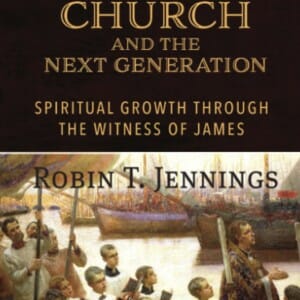One of the practices that “Celtic Spirituality” reveals over and again is God’s closeness and involvement within our everyday life. Theologians often refer to this understanding of God by discussing the immanence, the omniscience, and the ever presence of God.
The ancient Celtic tradition literally “incorporates” (Latin, in + corpus) this body of God by becoming aware of God in all of life which includes blessings and miracles. The world, the creation, the inhabitants—animals and humankind—everywhere we turn, God is active and incorporated into all of life. Look at the clouds, feel the wind, taste the porridge, sing the song, and yes, yes, a thousand times yes, there is God-with-us (Emmanuel) and within us, as we dance and sing and digest every moment of our life with God. The extraordinary enters the ordinary, the supernatural fills the natural, and the divine embraces the human in ways that God is known. Such awareness and attentiveness to God flows through Celtic Spirituality.
Of course, for some, there is resistance, denial, and fear when it comes to God getting too close for comfort. Some of us prefer a closed universe. Others desire a God who is at arms-length. Many do not like to have our space invaded and in place of God, they choose convenience, comfort, and efficiency for an easy life. DIY, do it yourself, means God is not needed. So, it is no surprise our culture often considers blessings and miracles irrelevant.
St. Patrick entered such a world with the Druids in the 5th Century AD. By invoking God’s blessing, we almost hear the singing begin, “When Irish Eyes Are Smiling!” St. Patrick opened eyes to see how everyday blessings could lead to miracles and a life with God. It was not that life was easy. Rather it was a life that recognized God was close at hand. Hear, St. Patrick’s prayer: “Christ with me, Christ before me, Christ behind me, Christ in me, Christ beneath me, Christ above me, Christ on my right, Christ on my left, Christ where I lie, Christ where I sit….”
What was apparent for St. Patrick and for those who experienced a blessing, their life was open to God’s presence, with miracles never far behind. St. Patrick’s prayer is referred to as a lorica or, again in Latin, a “breastplate.” Granted, there is a sense of protection, security, or defense that surrounds us in such a prayer. But at a far deeper level, Patrick’s prayer recognizes our vulnerability, and the reality of life is not easy. There is nothing comfortable, convenient, or efficient found in the rough and tough life of Patrick’s prayer. There is only Christ. But that is enough. The yoke of Christ is easy, and with it comes grace.
Recall St. Paul, who heard God speak to him in a vision, “My grace is sufficient for you, for my power is made perfect in your weakness.” (2 Corinthians 12: 9) God responds not by keeping us unharmed as we make our way through life but rather God’s presence surrounds us with grace every day, and with every breath we take, and with every step we make, God’s grace is with us. God’s grace provides strength, courage, and all we need in facing difficulty.
Rather than be crushed by suffering, grief, heartache, or all the many wounds that have left us in a state of weakness, the miracle is that in Christ, we stand, we move forward, and we progress with his yoke. Life in Christ is a blessing. And, hear this: as a result of this blessing, we become the miracle. Be on the lookout for miracles. We start by receiving the gift of grace that transforms our life into a miracle as we do what we cannot do on our own. The Rev. George Strunk often closed services with a blessing written by Phillips Brooks:
Do not pray for easy lives. Pray to be strong. Do not pray for tasks equal to your powers. Pray for powers equal to your tasks. Then the doing of your work shall be no miracle, but you shall be the miracle.”
So, we do not pray for easy lives. The Druids recognized the harsh reality of everyday life. But as St. Patrick blessed them, they changed by looking to God for grace and strength in Christ to become a miracle against all odds.









[…] Open the full article on the kingdomwinds.com site […]